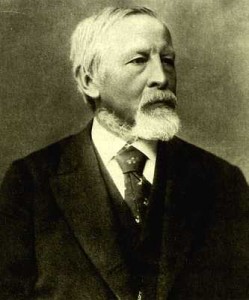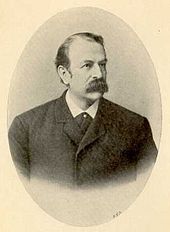Despite only a fairly recent move to prominence the understanding of dyslexia began in the late 19th century.
Socie tal interest in people with reading difficulties probably began in 1878 with Adolph Kussmaul, a German neurologist. He had a special interest in adults with reading problems who also had neurological impairment.
tal interest in people with reading difficulties probably began in 1878 with Adolph Kussmaul, a German neurologist. He had a special interest in adults with reading problems who also had neurological impairment.
He noticed that several of his patients could not read properly and regularly used words in the wrong order. He introduced the term ‘word blindness’ to describe their difficulties.
In 1887, a German ophthalmologist, Rudolf Berlin, was the first to use the word ‘dyslexia’ in place of word blindness. The condition was described as ‘dyslexia’, from the Greek meaning ‘difficulty with words’.
1887, a German ophthalmologist, Rudolf Berlin, was the first to use the word ‘dyslexia’ in place of word blindness. The condition was described as ‘dyslexia’, from the Greek meaning ‘difficulty with words’.
The first case of developmental dyslexia was reported by Pringle-Morgan in the British Medical Journal on 7 November 1896.
Pringle-Morgan, a general practitioner, and Hinshelwood, an ophthalmologist also writing at the turn of the century, speculated that such difficulties with reading and writing were due to “congenital word blindness,” and for many years the dominant view was that dyslexia was caused by visual processing deficiencies.
I n 1925, an American neurologist, Dr. Samuel T. Orton proposed the first theory of how specific reading difficulty arose. He placed a great emphasis on the dominance of one side of the brain. Teaching strategies he developed during his research are still in use today.
n 1925, an American neurologist, Dr. Samuel T. Orton proposed the first theory of how specific reading difficulty arose. He placed a great emphasis on the dominance of one side of the brain. Teaching strategies he developed during his research are still in use today.
Numerous forms of specific learning difficulty were being studied during this period but became widely recognised in 1939 when Dr. Alfred Struss and R. Heinz Werner published their findings on children with a wide range of learning difficulties. Their work emphasised the variety of these problems and the importance of individually assessing each child’s particular educational needs.
It was not until the mid-twentieth century that children with specific literacy difficulties began to be no longer considered to be under the jurisdiction of medicine. Educational and psychological research began to accumulate at this time, broadening understanding and refining concepts of child development.
Read More: https://www.mcgraw-hill.co.uk/openup/chapters/9780335235940.pdf
Read More: Rudolf berlin’s Paper (In German) http://gdz.sub.uni-goettingen.de/dms/load/img/?PPN=PPN513409602&IDDOC=294878